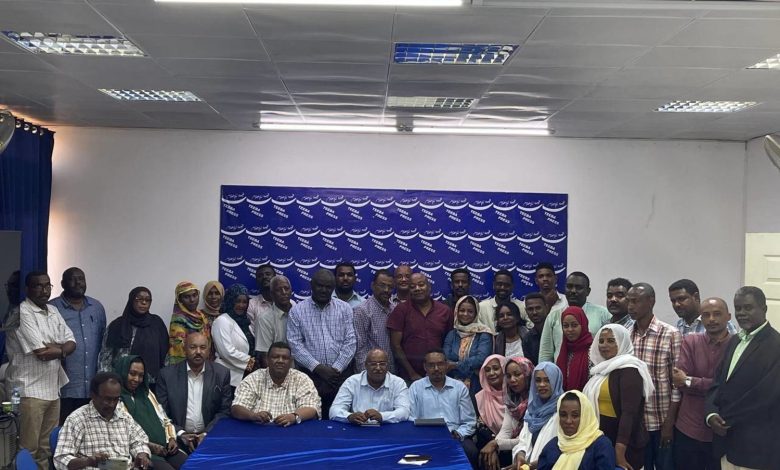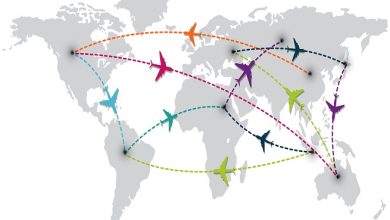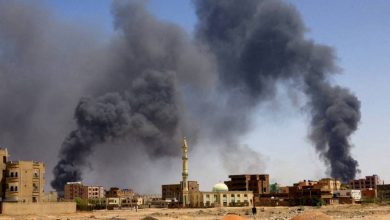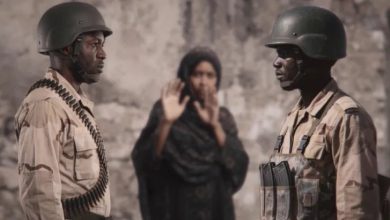War robs Journalists of their jobs

Report Agencies – Sudan Events
Ali Farsab, a Sudanese journalist, emits a long sad sigh as he sat at the shore of the Red Sea near Port Sudan, and began to moan and try to “analyze” the country’s conditions, the outcome of the war between the Sudanese Armed Forces (SAF) and the “Rapid Support Forces (RSF)”, which has now reached its ninth month and during which thousands of civilians lost their lives, yet not decisive victory has been scored by one of the two parties to the conflict.
Farsab moved from the general reality to his, the reality he lives with his fellow journalists because of the war: “It took away their pens and papers, and large numbers of them lost their jobs, and they have remained without work since the first bullet was fired from the rifles, mid of last April.”
He complains: “Journalists are living in harsh conditions after the outbreak of fighting. A big number of them left the country by air, sea and land crossings, while those who remain are exposed to great risks and live just few steps away from death.”
Many journalists in the city of Port Sudan are waiting for months for entry visas that would enable them to seek refuge in neighboring countries, but to no avail… and the waiting doubled their suffering, as they did not have enough money to spend while waiting. The head of the Journalists Syndicate, Abdul Moneim Abu Idris, told Asharq Al-Awsat: “90 percent of male and female journalists are now unemployed following the outbreak of war. Some of them traveled outside Sudan and worked in other professions to be able to meet basic family needs, and some other members of the syndicate are living in poor economic conditions.” “It is difficult because they did not find any other jobs to take them in.”
Waiting for an “entry visa”
Like her colleague Farsab, journalist Thuraya Ibrahim came to Port Sudan a month ago to cross the Red Sea to the Kingdom of Saudi Arabia while waiting to obtain an entry visa. Thuraya lives with her colleagues, and she tells Asharq Al-Awsat: “Unfortunately, I have to leave my profession that I started in 2005. Therefore, I am sad and afraid of the unknown future that I do not know what it is, and I do not even know when I will leave for Saudi Arabia.”
It is noteworthy, however, that the conditions of Sudanese journalists in general were not good before the war, as about 250 of them lost their jobs due to the economic conditions that resulted after the coup of October 25, 2021, which led to a number of institutions stopping work, while the rest were forced to cut employment.
But after the war, the reality became more critical. All media institutions located in the areas of clashes stopped working, including government Television and Radio, after the RSF took control of their head offices, before they returned to broadcasting from outside Khartoum. The official agency “SUNA” was also forced to stop before it resumed broadcasting from outside Khartoum, after 4 months, along with daily newspapers, correspondents’ offices, printing presses, and distribution companies, all of which stopped because they were located in areas of clashes.
According to the head of the Journalists Syndicate, Abdul Moneim Abu Idris, 90 percent of media institutions lost their infrastructure and their equipment and devices were looted, which impacted the form of press coverage during the war. This could even result in a long crisis after the end of the war, due journalists losing their jobs.
In a statement issued by the Journalists Syndicate last week, the RSF turned the National Radio and Television buildings into detention centers, and that some devices and equipment for TV and Radio broadcasting were seen offered for sale in Omdurman marketplaces. The Syndicate described this as “irresponsible behavior that exposes the country’s video and audio archives to the risk of destruction, devastation, and disappearance forever.”
In addition to TV and Radio, the Sudanese 24 and Al-Balad satellite channels were vandalized, and all their equipment was looted, the BBC offices in Khartoum were looted. Devices and equipment belonging to the Blue Nile satellite channel were also seen offered for sale in one of Omdurman’s markets.
The Syndicate called on the RSF to evict these institutions, and urged international and regional organizations concerned with media freedom to condemn these violations.
When fighting broke out in the streets of Khartoum, the Journalists Syndicate was 6 months old, as the first “elected” union in the country was more than 30 years upon dissolution of unions. Despite its young age, it tried to search for resources to help its members, including providing medical treatment for about 12 of them who suffer from chronic diseases, and providing monthly assistance to about 20 others who also suffer from chronic diseases.
The head of the Journalists Syndicate says: “80 members of the union in the central state of Gezira and the Red Sea state in the east received training courses and financial assistance, and 40 other journalists are expected to receive training courses and financial grants in the northern River Nile state, as well as in the eastern states, Gadarif.”
The Journalists Syndicate, in contact with journalists’ organizations concerned with freedom, is working to launch a campaign to rehabilitate institutions that were damaged by the war. The Head of the syndicate continues: “The reality is that if the war stops, the possibility of those institutions returning to work is very weak, particularly those owned by the private sector, because of economic conditions,” noting that “one of the satellite channels valued the looted equipment at the equivalent of one and a half million dollars.” He continues: “At the individual level, 4 journalists lost their lives, some of them lost members of their families, and most of them lost their property.”
Abu Idris attributes the spread of misinformation and disinformation and the spread of hate speech to “the absence of local media.” Of the approximately 2,000 journalists, only 10 percent work, most of them in foreign or government media, and some websites. He adds: “Journalists cannot cover the field, and thus the neutral third party that reports the facts is absent.”



